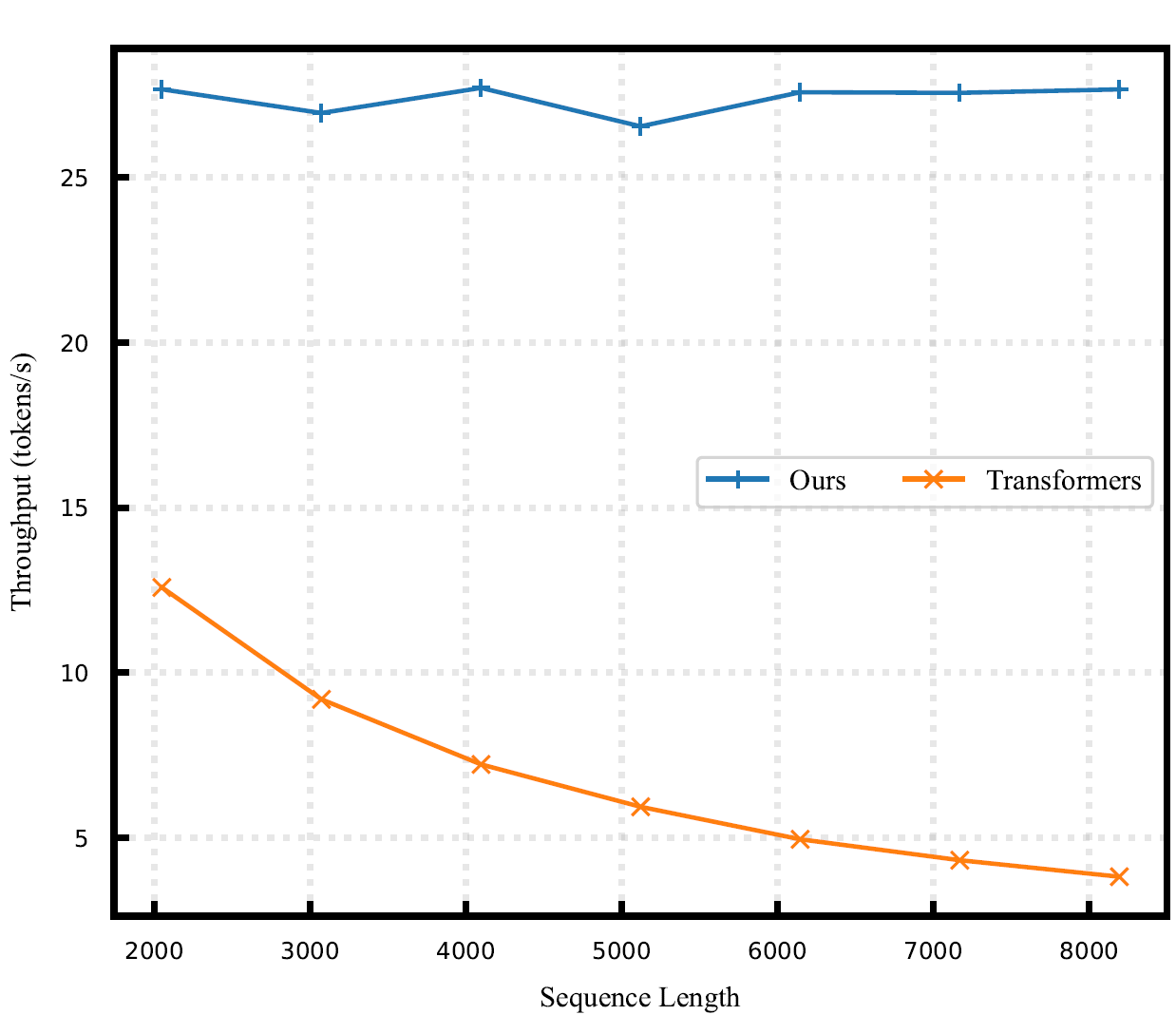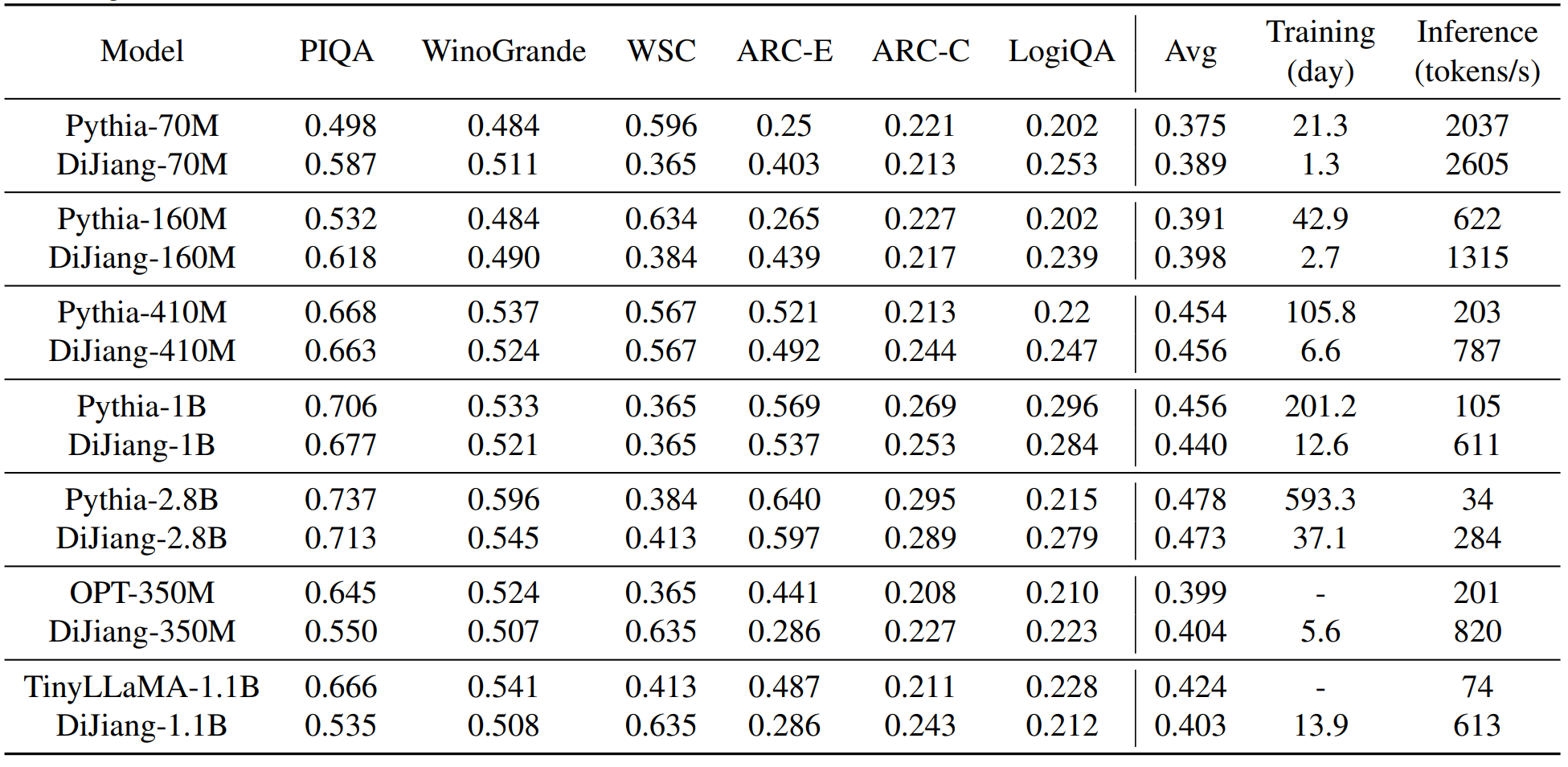This is the official implementation of "DiJiang: Efficient Large Language Models through Compact Kernelization", a novel Frequency Domain Kernelization approach to linear attention. DiJiang is a mythical monster in Chinese tradition. It has six legs and four wings , and it is known for its capability to move quickly.
🚀 In our work "DiJiang", we propose a fast linear attention approach that leverages the power of Fast Discrete Cosine Transform (Fast DCT). Theoretical analyses and extensive experiments demonstrate the speed advantage of our method.
-
Download Dataset: We utilized the Pile dataset for training The Pile: An 800GB Dataset of Diverse Text for Language Modeling (arxiv.org)
-
Check CUDA version: suggested cuda>=11.7
-
Install required packages:
pip install -r requirements.txt
A training shell is provided at bash run_dijiang.sh for your reference.
Important arguments to take care of:
--model_name_or_path <path to the HuggingFace model>
--dataset_dir <path to the original PILE dataset>
--data_cache_dir <path to the cached dataset (if cached); cache stored at this dir>
--per_device_train_batch_size <global_batchsize // device_count>
--output_dir <dir to store the trained model>
--logging_dir <dir to store tensorboard>
- Training code for DiJiang
- Better inference code
- Inference models
@misc{chen2024dijiang,
title={DiJiang: Efficient Large Language Models through Compact Kernelization},
author={Hanting Chen and Zhicheng Liu and Xutao Wang and Yuchuan Tian and Yunhe Wang},
year={2024},
eprint={2403.19928},
archivePrefix={arXiv},
primaryClass={cs.CL}
}
We acknowledge the authors of the following repos:





